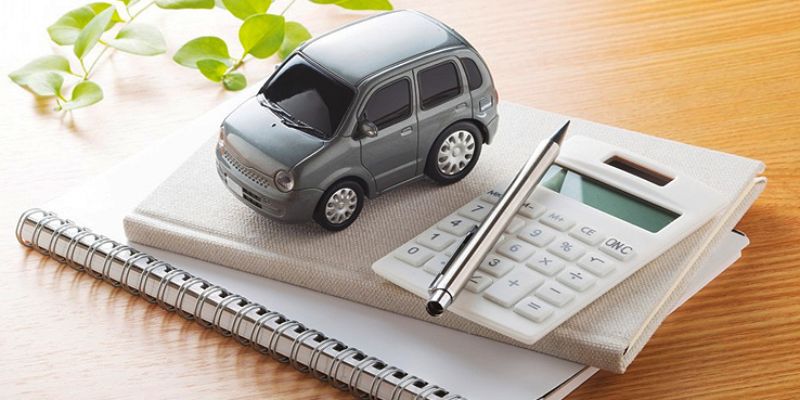Making a budget can seem overwhelming, but understanding fixed and variable expenses is key to maintaining financial discipline and achieving your long-term goals. Knowing what to expect regarding the costs that remain the same from month to month (fixed expenses) and those that change (variable expenses) can help you develop an effective budget plan.
We'll explore how you can budget for fixed and variable expenses by breaking down each cost type and discussing budgeting strategies. By exploring short-term solutions, such as using cash envelopes or eliminating unnecessary items, as well as more long-term options, such as creating sinking funds or debt payoff plans, you can make wise decisions about managing your finances.
What Are Fixed Expenses

Fixed expenses remain the same monthly, whether rent or mortgage payments, car payments, insurance premiums, and other similar bills. These expenses should be accounted for in your budget first, as they cannot typically be changed or adjusted on a whim.
Examples of Fixed Expenses
• Rent/Mortgage payments
• Car payments
• Insurance premiums
• Utility bills (such as water, gas, and electricity)
• Grocery bills
• Childcare costs
How to Budget For Fixed Expenses

The key to budgeting is identifying and prioritizing your actual needs. It would be best to look at your fixed expenses, decide what you can or cannot do without, and then create a plan. Once you know exactly how much you need toto cover your necessary fixed expenses each month, ensure that the amount is accounted for in your budget.
If it isn't possible to cover all of them with the available income, you may need to look into additional sources of income, such as a side job or selling some of your possessions.
What Are Variable Expenses
Variable expenses fluctuate monthly, including dining out, shopping, entertainment, transportation costs, and more. These expenses are more discretionary and can often be adjusted or eliminated depending on your financial situation.
Examples of Variable Expenses
• Dining out
• Shopping/clothing purchases
• Entertainment (movies, concerts, etc.)
• Transportation costs (gas for the car or bus fare)
• Vacation/travel expenses
• Personal care items (cosmetics, hygiene items, etc.)
How to Budget For Variable Expenses
When budgeting for variable expenses, you should first look at your available money after accounting for all your fixed expenses. From there, decide your priorities and how much you can spend in each category without exceeding your monthly budget.
If there are certain areas where you find yourself consistently overspending, consider setting aside a specific amount of money each month in an envelope or account specifically designated for that item or service – this is known as creating a "sinking fund."
How to save on fixed and variable costs
There are several ways to save money on monthly fixed and variable costs. For example, you can look into lower-cost alternatives or discounts for certain services or products you use regularly. It's also helpful to compare rates when shopping around for insurance plans and negotiate with your provider for a better deal.
You can also save on variable expenses by reducing the money you spend in certain categories or eliminating unnecessary items. Consider using cash envelopes to budget for various categories, such as dining out, shopping, entertainment, etc., so you know exactly how much money is available for each type of expense.
You may also want to look into strategies such as setting up automatic transfers from your checking account into a savings account each month or creating a debt payoff plan.
By understanding the difference between fixed and variable expenses, coming up with creative strategies to save money, and sticking to your budget plan, you can make wise financial decisions and stay on track toward achieving your goals.
Create a Budget That Works for You
Creating a budget can seem overwhelming, but a clear understanding of fixed and variable expenses is key to achieving your long-term financial goals. By breaking down each type of cost and discussing strategies for budgeting, you can make wise decisions about managing your finances.
Whether it be using cash envelopes or creating a sinking fund, there are several ways that you can save on both fixed and variable costs each month. You can stay on track with the right plan to reach your objectives.
The most important thing is to find a budgeting system that works for you and creates a sustainable plan you can stick with. You may need to adjust your budget as your needs or income change, but having a clear understanding of how to budget for fixed and variable expenses will ensure you make the most out of every dollar.
Monitor Your Spending Habits to Stay Within Budget
Budgeting is not a one-time event but an ongoing process. Monitoring your spending habits and ensuring you stay within your budget each month is important. By tracking your expenses closely and making adjustments as needed, you can stay on top of your finances and ensure you reach all of your goals.
Creating a budget for both fixed and variable expenses can seem daunting at first, but by breaking down the individual costs and exploring strategies for saving money, you will be able to develop an effective plan. With the right approach, you will have the confidence and clarity necessary to make wise financial decisions.
By monitoring your spending habits closely and adjusting accordingly, you will be well on your way to achieving your financial goals. With a clear understanding of fixed and variable expenses, you can create a budget that works for you and keep track of your progress toward reaching your objectives.
FAQS
Should a budget include both fixed and variable expenses?
Yes, your budget should include both fixed and variable expenses. Fixed expenses are those costs that remain the same from month to month, such as rent or mortgage payments, utility bills, and insurance premiums. Variable expenses fluctuate monthly, such as dining out or entertainment costs.
Should a budget include both fixed and variable expenses?
Yes, your budget should include both fixed and variable expenses. Fixed expenses are those costs that remain the same from month to month, such as rent or mortgage payments, utility bills, and insurance premiums. Variable expenses fluctuate monthly, such as dining out or entertainment costs.
What is the hardest part of budgeting?
The hardest part of budgeting is often maintaining the discipline to stick to your plan. It can be easy to overspend or get tempted by luxury items, but it's important to stay within your budget and make sure you are prioritizing your long-term goals. Creating a budget and tracking your expenses closely will help you stay on track toward achieving success.
Conclusion
A plan is the key to budgeting for fixed and variable expenses. Writing down your current income and expenses, forecasting future needs, tracking monthly and annual costs, and making adjustments when necessary can help you stay on top of your budget. Consider using a budget template or other financial management tools like spreadsheets or personal finance apps to make this process easier. Learning how to budget for fixed and variable expenses can help keep you afloat financially and bring peace of mind regarding spending.




